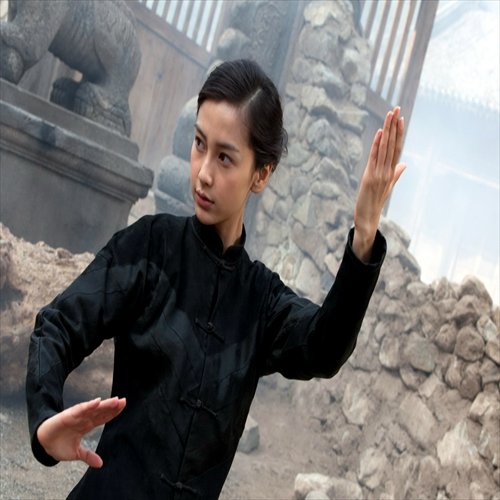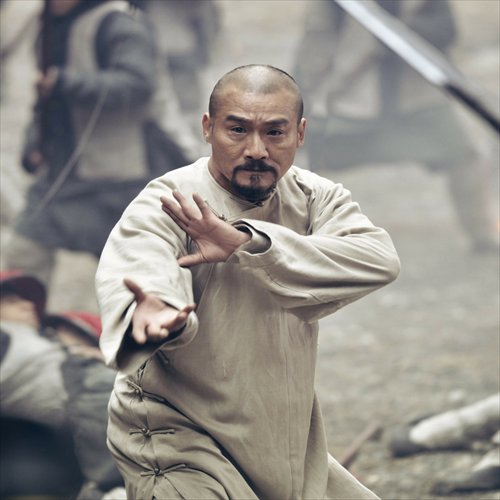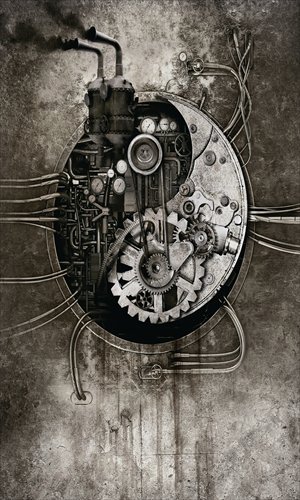Packing a punch



Young Hong Kong director Stephen Fung, who used to be a household name, wants to make kung fu movies popular again and so has made a kung fu trilogy. Taichi is already being advertised around town and the first two movies will hit the cinemas on September 27 and October 25 respectively.
Starring Yuan Xiaochao, Tony Leung (Leung Ka Fai), Angelababy, Shu Qi and Daniel Wu, a cast combining talented veterans and popular idols, the movie tells the story of Yang Luchan (Yuan Xiaochao), who lives in the late Qing Dynasty (1644-1911), an era of great domestic strife and foreign aggression. Yang competes against the best tai chi master of his time.
Moving away from tradition
The producer Wang Zhonglei officially stated to the public that the Taichi trilogy overturns the tradition of Chinese kung fu movies. According to him, this time their marketing group defined the movie as a "hybrid kung fu movie," which he believes is very accurate. He said Taichi, from the aspects of type, plot and cast, diversifies the Chinese movie genre to make it fresh.
Feng's mission is worthy of admiration. It is no small venture to make such a big-budget production, which involved a 220 million-yuan ($34.9 million) investment, when the kung fu movie genre is in the depths of depression.
Taichi does make a bold attempt to be inventive. The movie employs elements from cartoons and video games. However, this creative undertaking seems to have both pros and cons.
Its supporters appreciate the creative spirit of the director. When the tricks of Jacky Chan and Jet Li that once surprised audiences became clichés copied thousands of times in fighting scenes, bored audiences became eager for something new, and Taichi gives this to them.
"Looking at a preview of Taichi, it can be seen that the movie itself is an attempt by a young director to add something new to kung fu movies. He adds a lot of modern elements into the movie, not only displaying the acrobatic fighting, but also involving high-tech methods and special effects," said movie critic Tomato Queen, who is popular on the Internet.
"Even the theme music is a breakthrough. It is of an electronic rock style," he told the Global Times. The critic defined Taichi as a "special fashion of kung fu movie." He thinks it's exaggerated to say it will save movies of its type from decline, but it's certainly an encouraging exploration for modern kung fu movies.
Possibly novelty is the key to revive an industry in decline. According to Kong Fu Time, a blogger on Sina Weibo focusing on kung fu movies, pure kung fu movies are not necessarily welcomed anymore.
Therefore "diversification and creation turn out to be good things for kung fu movies to stand out among numerous and various kinds of movies," he told the Global Times.
Fight for survival
But different from many other types of movies, kung fu movies should still focus on the fighting part. Innovations should be concentrated on the acrobatic fighting scenes.
Wu Ya'nan, a tai chi player who has won champions in many world martial art competitions, hopes this one will be different from previous works on tai chi. "As a tai chi player, I expect to see a new representation of tai chi in the movie. Also the hero is my teammate in the national team, so I look forward to his performance."
But Wu also thinks that The Master of Tai Chi TV series performed by Wu Jing, and the movie of the same name performed by Jet Li, are too popular and pervasive, so it is quite a challenge. "To break the tradition without breaking away from tai chi skills means the action direction must be excellent," Wu told the Global Times.
Whether the fighting scenes in the movie also have a successful break is questioned. "The action director of the movie Taichi is Sammo Hung (a renowned Hong Kong action movie star and action director), so I am sure it is a first-class production in terms of fighting scenes," Lan Haihao, action director of Flying Swords of Dragon Gate, told the Global Times.
But others may have objections. According to Zhang Yi, website editor and famous movie critic adopting the screen name Dushe Levin, it is questionable whether the movie can refresh the whole movie type and lead to a kung fu movie comeback.
Either way, the audiences' response will be the final word. "Judging from the tai chi moves revealed in the preview, it does not look better than Ip Man (an acclaimed kung fu movie screened in 2008) in choreographing the martial art skills and tricks," Zhang told the Global Times.
Staying true to tai chi
Experts in tai chi are even more scornful. Tai chi master Zeng Qingzong complained to the Global Tines that "nowadays there are rarely any kung fu movies about tai chi that are produced by people who support the traditional tai chi techniques and theories."
He thinks only if movies use the traditional essence of tai chi as their base, like taking advantage of the power of the enemy and keeping harmony in the inner heart, can they really improve the "tai chi part."
For many kung fu movie fans, it is obvious that the innovation in this movie, and of a few other recent kung fu movies, is actually an imitation of Hollywood style to a certain extent. For instance, this year's Wu Dang is fiercely criticized for its clumsy abuse of computer technologies and its simple adventure thread.
Audiences of kung fu movies, on one hand, are looking for something novel, but on the other, they never want to see the movie getting too far away from the traditional Chinese kung fu movie plot in which every punch should look real and clever, showing the beauty and wisdom of Chinese kung fu. An example is the short rejuvenation of kung fu movies stimulated by Ip Man, where Donnie Yen fully presents his genuine Chinese kung fu skills.